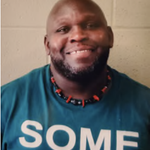
The Louisiana Board of Pardons and Committee on Parole will consider at least two additional applications for clemency on November 27, following a tumultuous year in which nearly all Louisiana death row prisoners sought clemency in response to outgoing Governor John Bel Edwards voicing his personal opposition to the death penalty. Under the Louisiana Constitution, Governor Edwards cannot grant clemency without a recommendation from the Board; he asked the Board to set hearings so that he could fulfill his “authority and duty to consider these applications.” However, amidst opposition from Attorney General and Governor-elect Jeff Landry, who will take office in January, as well as several District Attorneys, the Board has held limited “administrative reviews” for a fraction of applicants and recommended full hearings for none. Like previous applicants, Bobby Hampton and Todd Wessinger will be barred from addressing the Board, and their attorneys will have just 15 minutes to make the case for a full hearing and a recommendation of clemency.

The efforts towards mass clemency began when Governor Edwards called the death penalty “so final” during a March speech, noting that “when you make a mistake, you can’t get it back…and we know that mistakes have been made in sentencing people to death.” He had long identified as “pro-life” but had not previously shared his views on capital punishment. Then, in April, he used his final “State of the State” address to ask the legislature to abolish the death penalty. In June, 56 of 57 people on Louisiana’s death row filed clemency applications with the Board. Governor Edwards, a Democrat, is term-limited from running for re-election. Several governors have granted mass commutations of death row prisoners before leaving office, including Governor George Ryan of Illinois in 2003, Governor Kate Brown of Oregon in 2022, and governors of New Jersey, Maryland, and Colorado before those states abolished the death penalty.
However, Mr. Landry quickly moved to oppose mass clemency in his capacity as Attorney General, as he continued to campaign for Governor. Mr. Landry’s office issued a nonbinding advisory opinion arguing that the clemency applications could not be considered because they were untimely under state administrative rules. The Board then set aside all 56 applications on July 24 without reviewing any on the merits. In response, Governor Edwards reaffirmed his opposition to the death penalty and directed the Board on August 9 to set hearings for the applications. He described Mr. Landry’s opinion as “misguided,” yielding “a result that is both absurd and illogical.” Mr. Landry won the governorship on October 14.
Instead of setting full hearings to consider clemency on the merits, the Board scheduled the “administrative reviews” for a handful of applicants. The Board also faced a lawsuit by East Baton Rouge District Attorney Hillar Moore seeking to limit the number of hearings. On October 13, the Board denied full hearings for five prisoners after brief presentations from defense attorneys and victims’ families. According to the Board’s website, it reviewed and denied full hearings for a further eight applicants in early November. The number and names of applicants the Board will consider has fluctuated over the past several months.
On November 27, the Board will consider whether Bobby Hampton and Todd Wessinger merit full hearings on clemency. Mr. Hampton and Mr. Wessinger, both Black men from impoverished families, illustrate many of the pervasive issues in the administration of Louisiana’s death penalty, including “racial disparity, intellectual disability, severe mental illness, trauma, innocence and others repeat over and over in Louisiana’s death penalty cases,” according to Executive Director of the Louisiana Capital Appeals Project Cecelia Kappel. Ms. Kappel represents several prisoners who have filed applications. “Looking at these cases collectively makes it clear that the system is fundamentally broken,” she said in June. Bill Quigley of Loyola Law in New Orleans identified racism as the “through-line” in Louisiana’s death penalty system. “Every problem in the system — wrongful convictions, intellectual disability, geographic concentration, sentencing young offenders to death — it all skews overwhelmingly against Black people,” he said. No white person has ever been executed in Louisiana for killing a Black person, while Black people represent two-thirds of death row.

In Mr. Hampton’s case, the prosecutor withheld the grand jury testimony of two eyewitnesses who identified a co-defendant as the shooter, then lied to the trial judge and the defense in open court about that testimony. On direct appeal, the Louisiana Supreme Court ruled that the testimony was clearly exculpatory but the prosecutor’s misconduct did not deny Mr. Hampton a fair trial. Justice Bernette Johnson wrote in dissent that the “facts in Brady are virtually identical to the instant case.” Mr. Hampton’s jury never heard about his severe childhood trauma, including relentless physical abuse from his mentally ill mother, who scalded him with boiling water and tried to light him on fire. Charisse Coleman, the sister of victim Russell Coleman, vehemently opposes the death penalty for Mr. Hampton because it “won’t bring Russell back, or ease her loss.” Ms. Coleman has said that “no other event…could conjure as potent an alchemy of dread, confusion and renewed anguish as having to face the execution of Russell’s murderer.”

In Mr. Wessinger’s case, two federal judges granted new sentencing trials due to counsel’s ineffectiveness in failing to present mitigating evidence. The all-white jury never heard that Mr. Wessinger has a hole in his brain from a pediatric stroke and severe brain damage from seizures; that seizures, intellectual disability, and mental illness are widespread on both sides of Mr. Wessinger’s family; that Mr. Wessinger suffered severe abuse from his alcoholic father; or that both his parents were born and raised in sharecropper’s cabins on plantations with no electricity or running water. The appellate court reversed one grant of relief, while the other is pending a reconsideration motion by the State. Justice Sonia Sotomayor dissented from the denial of certiorari in Mr. Wessinger’s case, writing that he “will remain on death row without a jury ever considering the significant mitigation evidence that is now apparent,” an outcome “deeply unjust and unfair.”
“Part of clemency is really about giving the opportunity to the survivors of these crimes to work on reconciliation, to work on the healing of the wounds that were created through those actions,” said Brett Malone, whose mother was murdered by Jeremiah Manning, a prisoner seeking clemency. “I just can’t see, at this point, how executing someone is going to bring any kind of closure or healing from the experience that we’ve had.”
Louisiana Department of Public Safety and Corrections, Pardon Board Schedules & Dockets; Zach Montellaro, Landry wins Louisiana governor’s race, flipping state red, Politico, October 14, 2023; Claire Sullivan, His mother was murdered. He wants Louisiana to spare her killer’s life., Louisiana Illuminator, August 15, 2023; Perry Robinson, Gov. Edwards publicly calls for an end to Louisiana’s death penalty as legislative session begins, WAFB, April 10, 2023; Bobby Hampton Clemency Petition; Todd Wessinger Clemency Petition; Wessinger v. Vannoy (2018).



